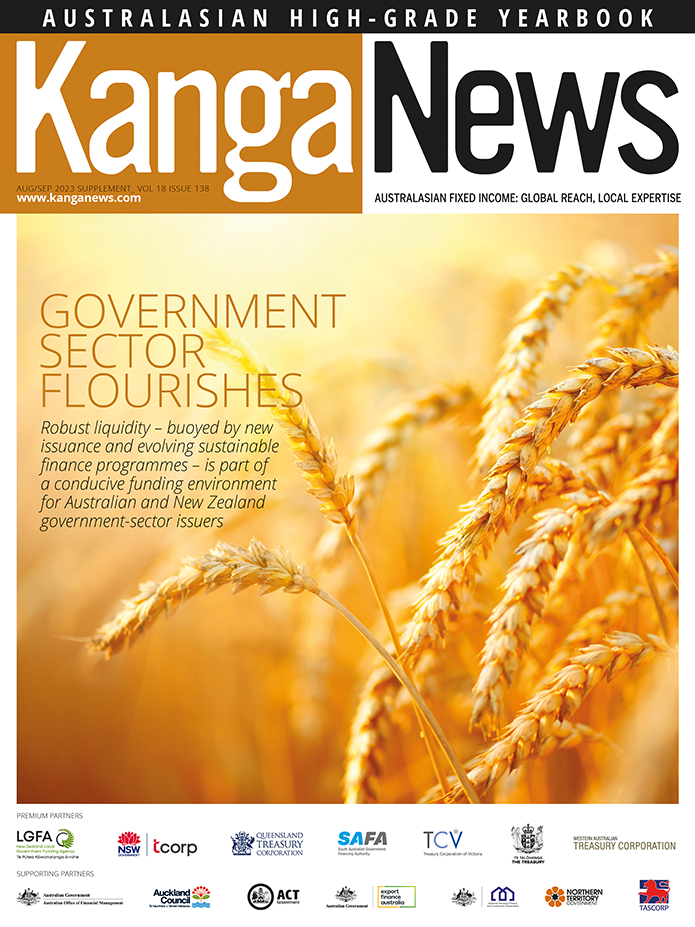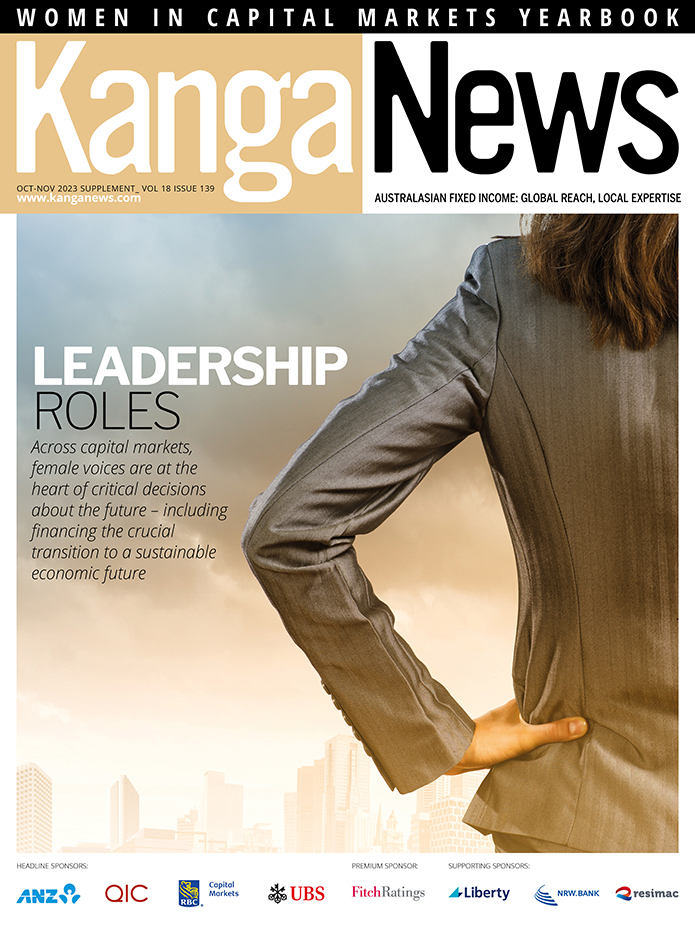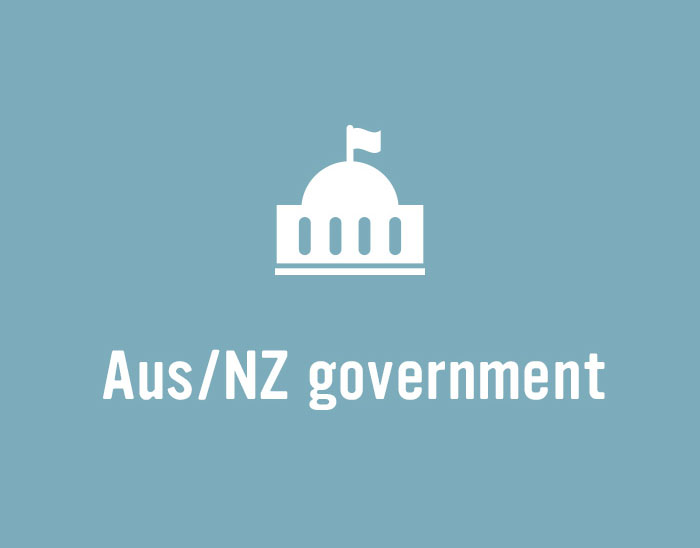
TCorp drives agency-wide sustainability evolution
Sustainability is a watchword for New South Wales Treasury Corporation in both its central roles as issuer of state-government bonds and manager of several public-sector funds. Key to its success is collaboration with government and strategic financial industry participants, with a collective aim to strengthen the system as a whole.
Best known in the sustainable-debt market as a pioneering issuer of green and sustainability bonds, New South Wales Treasury Corporation (TCorp) must also be an effective steward of the assets entrusted to it. Understanding and managing environmental, social and governance (ESG) issues across portfolios is critical to achieving sustainable investment outcomes. Rob Kenna, TCorp’s head of funding and balance sheet, and Lucy Thomas, head of investment stewardship, share insights on the sustainability journey.
How has TCorp developed its sustainability issuance approach?
KENNA Sustainability is important for the NSW government and for our investors, locally and globally, and TCorp embraced sustainability issuance early. The path may be well worn now but NSW invested an incredible amount of effort to ensure a robust and genuine commitment in a nascent market.
To successfully establish the NSW Sustainability Bond Programme, we partnered closely with NSW Treasury, the Office of Social Impact Investment and the NSW Department of Planning, Industry and Environment. Each stakeholder brought commitment, engagement and support, which enabled rigorous reporting and governance on the programme. This was vital in demonstrating its credibility.
The TCorp team shared best-practice lessons in investment and capital markets in areas such as ESG analysis, regulatory developments and stewardship practices. TCorp also leveraged its strategic relationships with leading fund managers in the sustainability space to inform its approach.
What is TCorp’s approach to sustainability as an investment manager?
THOMAS Activities within TCorp are designed to deliver positive outcomes for the NSW government and, by extension, its people. Rather than look at things through a portfolio-management lens or as an issuer of debt, we focus on the balance sheet as a whole.
We deepened our climate-related research this year and the insights from this are equally valid for our investment-management and debt-issuance work. It is about finding solutions to achieve sustainable financial impact for a stronger NSW.
The investment-management side of the business is also committed to stewardship. TCorp has a stewardship model that informs our approach. This comprises ESG integration, active ownership, collaboration and disclosure. We are seeking to influence and secure change on material ESG issues. Some of the prevalent topics of discussion we have had with investee organisations include cultural heritage, human capital, climate change and ethical conduct.
Board governance is another core theme. TCorp believes proxy voting is a key lever of an effective active-ownership approach and votes its proxies in-house. During the 2021 financial year, TCorp voted against 5 per cent of company proposals predominantly relating to concerns about remuneration structure and board independence.
How has TCorp contributed to the conversation on sustainability within the NSW government?
THOMAS Through its board-governance policy, TCorp identified that climate-related risk will affect investment markets and therefore we put processes in place to address the risks and opportunities. Again, collaboration is a significant lever to strengthen the financial system, particularly in the area of climate change.
We connect NSW Treasury with industry groups, researchers and thought leaders from the investment industry who specialise in climate-related risk. These introductions include the Investor Group on Climate Change and the Australian Sustainable Finance Initiative. This shared intellectual firepower helps participants understand the potential impacts of physical and transition risks.
We have also met with regulators such as the Australian Prudential Regulation Authority and the Reserve Bank of Australia to understand their perspectives on the systemic impact of climate-related risk. The benefits from these partnerships are enormous, given the pace of change in and understanding of climate-risk management.
TCorp is a member of the NSW Sustainable Finance Steering Committee (SFSC), which drives, supports and develops the state’s sustainable-finance agenda. TCorp brings a capital-market perspective, sharing global investor best practice on climate-related risk. This committee’s work contributed to climate-related risk being listed as a “state significant financial risk” in recognition of its potential for major financial impacts to the NSW balance sheet.
What sustainability outcomes has TCorp achieved so far?
KENNA TCorp has leveraged its strong relationships across the sustainability spectrum to underpin its activities as an investor and an issuer. The insights gained supported the development of our sustainability-bond programme, ensuring we could design bonds to meet investor requirements as well as assessing new opportunities for the portfolio.
TCorp’s sustainability-bond programme allows issuance in green, social and sustainability formats. It was the first of its kind for an Australian semi-government issuer. To date, TCorp has issued three bonds from this framework, raising a total of A$5.2 billion (US$3.8 billion) for NSW and creating a standalone ESG issuance curve. We believe the programme has supported the development of the Australian dollar ESG issuance market and has had a long-term positive impact on the domestic market overall.
Investor interest has grown substantially and the market has a greater understanding of the NSW government’s green and social objectives since TCorp’s inaugural green-bond deal in 2018. Our bond transactions have also been recognised through various local and global awards, even against highly credentialled sovereign and semi-sovereign issuers in Europe. Issuance and awards are the exciting part. But we must recognise they are the result of a great deal of work and rigour.
So far, TCorp has issued two NSW Sustainability Bond Programme annual reports providing robust information to investors on how bond proceeds have been used and the impact of their investments. Transparency for investors, strengthened by external assurance over the programme, is essential to success.
What role does TCorp play in sharing the NSW government’s sustainability initiatives with the market?
KENNA TCorp has been at the forefront of ESG issuance – but we are not resting on our laurels. Expectations and standards are evolving quickly. We welcome this challenge and we are active in engaging domestic and global bond investors on developments.
Investors are expressing increasing interest in gaining deeper understanding of the NSW government’s activities in the area of sustainability – climate in particular. We work closely with the government and through the SFSC and the NSW Sustainability Bond Committee to deliver on this need.
We included information on the NSW government’s net-zero plan in our recent post-budget briefing and investor pack. This plan supports initiatives including the electricity infrastructure roadmap, encouraging uptake of electric vehicles and transitioning the NSW transport fleet to renewable-energy or zero-emissions technology.
How is TCorp demonstrating best-practice ESG standards?
THOMAS Consistent with our investment beliefs and the NSW government’s 2050 net-zero emissions goal, TCorp introduced carbon-reduction targets for its developed-markets share portfolios in Q2 2021. The objective is to be 50 per cent less carbon intensive than the broad-based market index.
We also understand the impact of the capital we allocate on real-world outcomes. This year, we established our sustainable-development infrastructure strategy, which is aligned to the UN Sustainable Development Goals of decarbonisation, smart cities, and health and social infrastructure.
The benchmark for best practice is regularly being reset as investor ESG-related goals and ambitions deepen. TCorp is always looking to develop strategic partnerships with global investment houses to keep pace with these changes and adapt its approach. This enables us to maintain alignment of NSW state needs with funding programmes and investment portfolios.

HIGH-GRADE ISSUERS YEARBOOK 2023
The ultimate guide to Australian and New Zealand government-sector borrowers.

WOMEN IN CAPITAL MARKETS Yearbook 2023
KangaNews's annual yearbook amplifying female voices in the Australian capital market.









